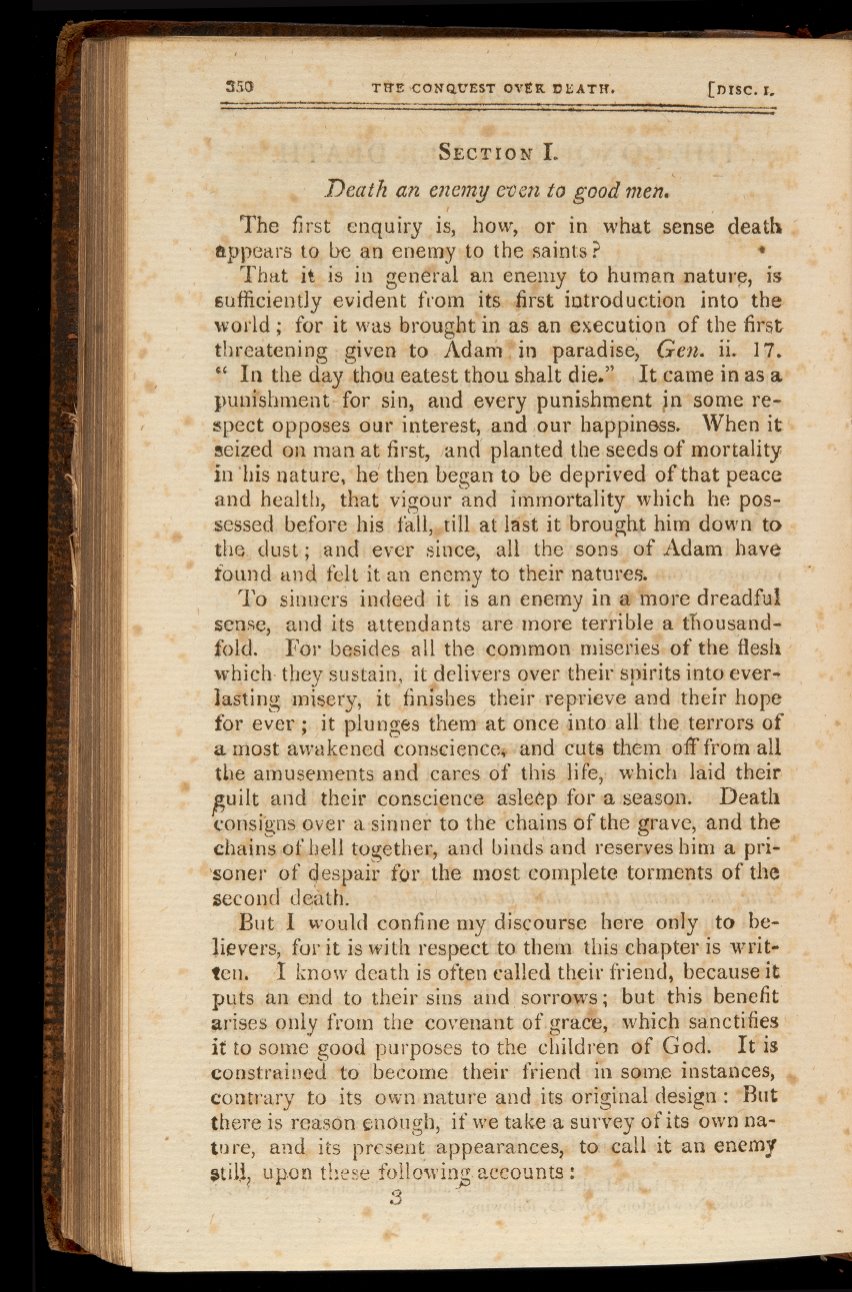

TßE
CONQUEST
O4$A DkATN.
jnrsc.
r.
SECTION
L
Death
an
enemy even to
good
men.
The
first
enquiry
is,
how,
or
in
what sense
death
appears
to
be
an
enemy
to
the
saints?
That
it
is
in
general an
enemy to
human nature,
is
sufficiently
evident
from its first
introduction
into
the
world
;
for
it
was
brought
in as
an
execution
of
the
first
threatening
given to
Adam
in
paradise, Gen.
ii.
I7.
°G
In
the
day thou
eatest thou
shalt die."
It
came
in as
a
punishment
for
sin,
and every
punishment
in
some
re-
spect
opposes
our
interest, and
our
happiness. When
it
seized
on
man
at
first,
and planted
the seeds
of
mortality
in
'his
nature,
hé then began
to
be
deprived
of
that
peace
and
health,
that
vigour and
immortality
which he pos-
sessed before
his
fall,
till
at last it
brought
him down
to
the
dust;
and ever
since,
all
the
sons
of
Adam have
found
and
felt it an enemy to
their natures.
To
sinners indeed it
is
an enemy in
amore
dreadful
sense,
and
its
attendants are
more
terrible
a
thousand-
fold.
For
besides all
the common
miseries
of
the
flesh
which
they
sustain,
it
delivers over
their spirits
into ever
-
lasting
misery,
it
finishes
their reprieve
and
their
hope
for ever
;
it plunges
them
at
once into
all
the
terrors
of
a
most awakened conscience, and cuts them off from all
the amusements
and cares
of
this
life,
which laid
their
guilt
and their conscience asleep for
a
season.
Death
consigns
over
a
sinner
to the chains
of
the grave,
and the
chains of
hell
together, and
binds
and
reserves
him
a pri-
soner
of
despair
for the most complete torments
of
the
second de ith.
But
I would confine my
discourse here
only
to
be-
lievers, for it
is
with
respect
to
them
this
chapter
is
writ-
ten.
I
know
death
is
often called
their
friend, because
it
puts
an end
to
their
sins
and sorrows;
but
this benefit
arises
only from
the covenant
of
grace,
which sanctifies
it
to
some good
purposes
to
the
children
of
God.
It
is
constrained to
become
their friend
in
some instances,
contrary
to
its own
nature
and
its
original
design
:
But
there
is
reason enough, if
we
take a
survey
of
its own na-
ture, and
its
present appearances,
to call it an
enemy
soli,
upon these
following
accounts

















